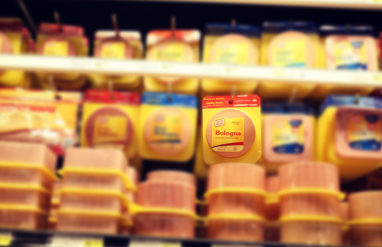This July 4th weekend, how about taking some time to consider the names of those items you are about to eat? Brace yourself for the short and disputed history of that American grilling favorite: the hot dog.
Why do we call hot dogs, well, hot dogs?
There are a few schools of thought on the origin of this favorite food.
Some think that people commonly believed that the thin sausages contained dog meat. This particularly gruesome coinage started on American college campuses in the late 1800s, according to hot dog historian Bruce Kraig.
The National Hot Dog and Sausage Council suggests the phrase, in part, might have slightly more innocent inspiration. In the mid-1800s, German immigrant butchers in the United States began selling variations of sausages, some of which were thin and long, like the dog breed dachshund. They called these dachshund sausages. Over time, the phrase may have been bastardized into hot dog.
Frankfurter vs. wiener
Two other words for hot dogs—frankfurters and wieners—raise an unsettled debate about where the food originated. The former is named for Frankfurt, Germany; the latter, for Vienna, Austria (wiener is the German adjective that means “of Vienna”). Even the National Hot Dog and Sausage Council says this argument is too hard to pin down.
Obviously, hot dogs do not contain dog, either. They have pork in them, whereas kosher hot dogs have no pork and are likely to contain beef, chicken, or turkey. (Fido’s safe!)
The history of the hamburger
While you’re out there at the grill, we might as well serve up some more food words!
The word hamburger also owes its origins to a German city: in this case, Hamburg. Food historians believe that around the same time sausage-makers were refining their meat products, cooks in Hamburg served up a cooked version of steak tartare. For awhile, the dish was known in English as hamburger steak.
If you’re a vegetarian, fear not. We have a word to barbecue for you, too. Throw a tofu burger on the grill and keep this is mind: tofu comes from Chinese, by way of Japanese, meaning “rotten bean.” Chew on that for a bit.
Interested in more food knowledge? Learn why a cow becomes beef once we eat it.














